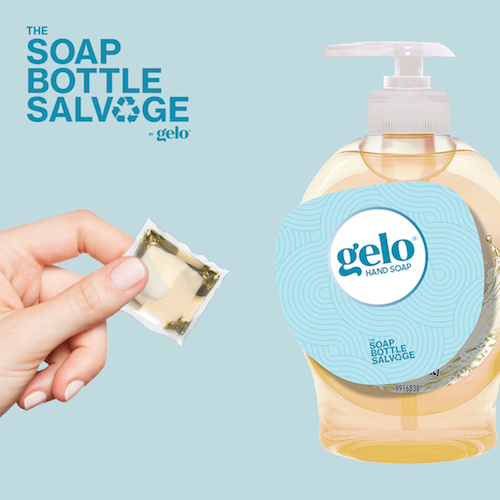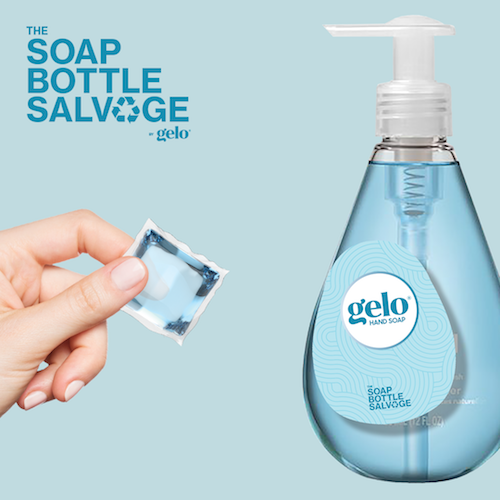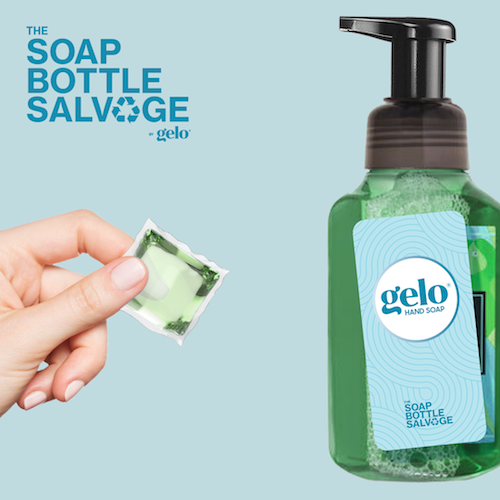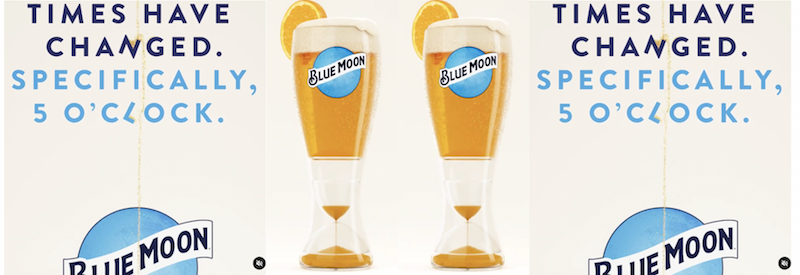If you’re going to make a statement to trigger change, don’t whisper. Mischief @ No Fixed Address doesn’t whisper. In its latest campaign, gelo (a reusable, refillable and eco-friendly hand soap company) is cleaning up its competitors’ mess by hijacking discarded bottles and giving them new life to save them from the ocean or landfill.
Mischief @ No Fixed Address and gelo’s Soap Bottle Salvage box comes with complimentary pods, a salvaged competitor bottle and gelo labels that stick over rival branding. People simply fill their salvaged bottle with gelo pods, add water and shake.
That sends a clear message to the hand soap to do better, doesn’t it?
Curan Mehra, founder and chief executive officer of gelo, commented, “We’re more than happy to help clean up our competitors’ mess, because the data’s clear, and alarming. Excessive packaging is a huge burden on our planet. By repurposing the discarded bottles from other companies in the hand soap space, we’re giving them another lease of life and further reducing our own plastic production. It helps that we’re not precious about our branding when it comes to the future of Earth.”

One gelo gel pouch refills five bottles of hand soap. That results in 97% less packaging waste compared to the equivalent number of single-use bottles. Because of their compact design, gelo refills also dramatically reduce the end users’ carbon footprint, slashing carbon emissions associated with transportation by 93%, when compared with the equivalent volume of single use bottles. Gelo has helped to divert more than one million bottles from landfills since launching on World Earth Day last year.

More than 1.3 billion tons of plastic waste will flow into the world’s oceans and land over the next two decades without widespread intervention, according to a group of leading experts.
In 2016, the most recent year for which data is available, plastic production reached 396 million metric tons. That is equivalent to 117 pounds of plastic for each person on the planet. Production of plastic in 2016 resulted in approximately 2 billion metric tons of carbon dioxide emissions, which accounts for almost 6% of the year’s total global carbon dioxide emissions. If all predicted plastic production capacity is constructed, current production could increase by 40% by 2030, according to recent research by WWF.
















